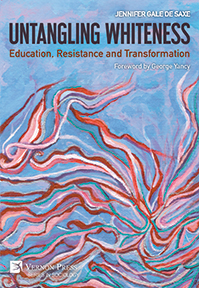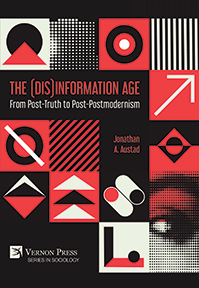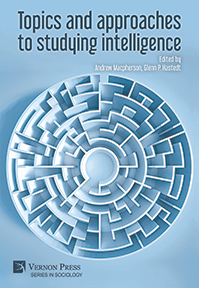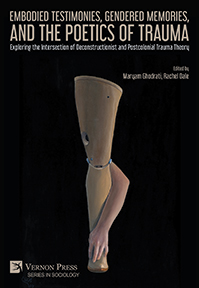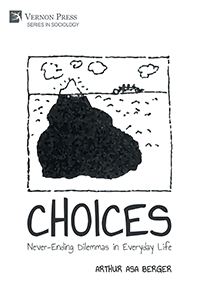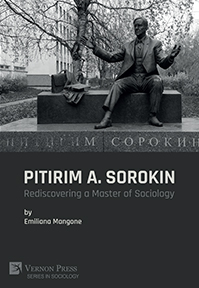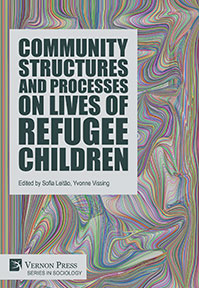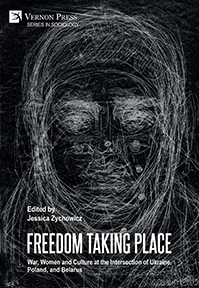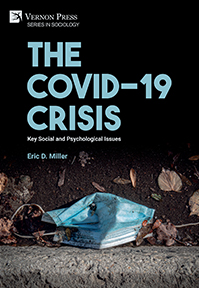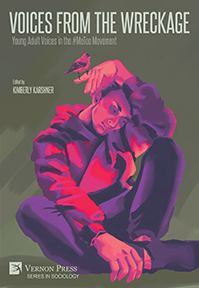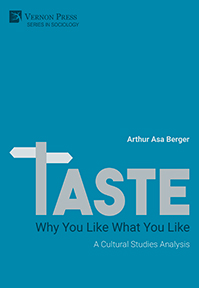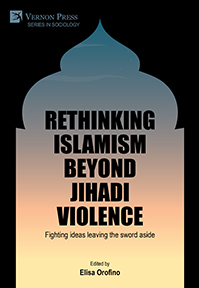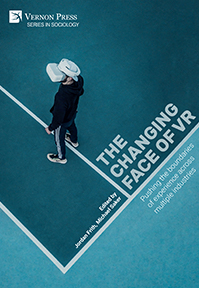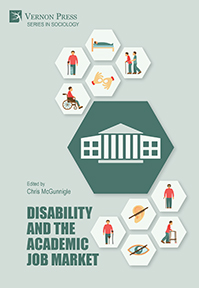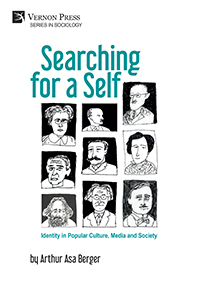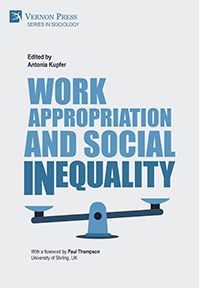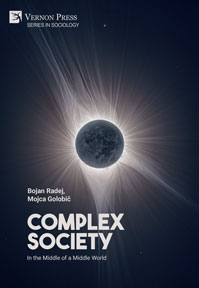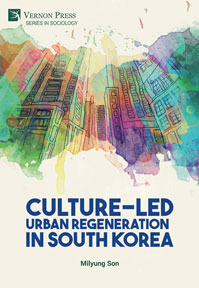Search
Browse
by Publication status
by Subject
Anthropology (26) Art (126) Business and Finance (27) Cognitive Science and Psychology (56) Communication and Journalism (49) Economics (63) Education (70) History (150) Human Geography (22) Interdisciplinary (43) Language and Linguistics (134) Law (16) Music Studies (19) Philosophy (161) Political Science and International Relations (104) Sociology (317) Statistics and Quantitative Methods (21)by Series
Series in Literary Studies (68) Series in Philosophy (59) Series in Education (54) Series in Sociology (45) Bridging Languages and Scholarship (33) Series in Politics (32) Series in World History (32) Series in Language and Linguistics (25) Cognitive Science and Psychology (21) Series in Philosophy of Religion (21) Series in American History (20) Series in Art (19) Critical Perspectives on Social Science (18) Series in Cinema and Culture (16) Series in Critical Media Studies (16) Curating and Interpreting Culture (15) Series on the History of Art (14) Economics (14) Series in Anthropology (13) Series in Business and Finance (13) Series in Music (12) Series in Communication (9) Series in Performing Arts (9) Philosophy of Personalism (8) Series in Law (8) Series on Climate Change and Society (8) Series in Economic Methodology (7) Women's Studies (7) Classics in Economics (6) Series in Economic Development (6) Philosophy of Forgiveness (5) Series in Built Environment (5) Series in Economic History (5) Series in Philosophy of Science (5) Series in Social Equality and Justice (5) Series on the History of Science (4) Serie En Estudios Literarios (3) Serie en Sociología (3) Series in Contemporary History (3) Series in Creative Writing Studies (3) Series in Design (3) The Interdisciplinary Built Environment (3) Serie en Comunicación y Medios (2) Serie en Historia (2) Serie en Música (2) Series in Heritage Studies (2) Series in Innovation Studies (2) Series in Philosophy of Race (2) Serie en Ciencias Políticas (1) Serie en Entorno Construido (1) Serie en Estudios Culturales (1) Serie en Filosofía (1) Serie en Filosofía de la Ciencia (1) Serie sobre Cambio Climático y Sociedad (1) Series in Classical Studies (1) Series in Economics of Technological Change (1) Series in Urban Studies (1)by Language
English Spanishby Author
Browsing with filters
Stories from the Front Line: The People Behind the NHS Headlines
The People Behind the NHS Headlines
Yvonne Bennett, Canterbury Christ Church University
and Christina Stead
Availability: In stock
162pp. ¦ $56 £45 €52
NHS Scotland appears to be in crisis. Today the British media is full of headlines such as “89-year-old great-grandmother waits 5 hours for an ambulance.” These are a talking point for a day or two and then another headline of a similar ilk takes over. This book examines the traumatic experiences of the elderly people whose stories make up these headlines. The authors have carried out research into the effects of long waiting times for ambulances and the problems that NHS Scotland is facing through chronic staff shortages. The waits and the limitations to patient care have long term implications for the patients, the relatives and the staff. Throughout the book we discuss iatrogenic disease/harm that is occurring daily for patients, visitors and staff. The book concentrates on the new Glasgow hospital, The Queen Elizabeth University Hospital, which opened its doors in 2015. This is one of the largest hospitals in Europe and replaces 5 older Glasgow hospitals and has been beset by major problems since its opening. By interviewing relatives and staff, the authors have examined their experiences both during and following a traumatic event. Themes found throughout the book include poor communication, trauma, low staff morale, suicide and the problems caused by the size and design of the hospital. The authors have also analysed statistics from NHS Scotland and Scottish Ambulance Service regarding waiting times and the use of agency staff. The overarching goal of this book was to give a voice to those behind the statistics.
Untangling Whiteness: Education, Resistance and Transformation
Jennifer Gale de Saxe, Victoria University of Wellington
Availability: In stock
188pp. ¦ $57 £45 €53
With the prominence of workshops, trainings, and anti-racist books popping up over the past few years, it may seem confusing as to what it really means to engage in deliberate and meaningful learning that challenges the many facets of racism and whiteness. 'Untangling Whiteness' directly interrogates the assumption that the teaching and learning about race and whiteness, particularly within the university context, can be condensed to one course, one workshop, or even a few trainings. It is a life-long process that may begin in one university classroom, but must continue as part of who we are as unfinished and undetermined beings. Through a deep and multi-faceted interrogation of racism and white supremacy, this book untangles critical theories of race, whiteness and resistance in an accessible and dialogical manner. It also situates whiteness in Aotearoa, New Zealand, demonstrating the importance of context and location when working to undermine and challenge it. As a theoretical provocation of existing scholarship on race and white supremacy, 'Untangling Whiteness' is underpinned by educating for critical consciousness, as well as a phenomenological engagement that aims to both interpret the world differently and transform it.
The (Dis)Information Age: From Post-Truth to Post-Postmodernism
Jonathan Austad, Brigham Young University-Idaho
Availability: In stock
274pp. ¦ $75 £60 €70
There has yet to be a strong consensus regarding when and if postmodernism ended. As such, there is no agreement about the new age’s name, origins, or tenets. Nealson’s 'Post-Postmodernism: or The Cultural Logic of Just-in-Time Capitalism' leaves out the impact of the internet and social media. Other books fail to explore post-postmodernism within a larger social-political framework and do not examine the cultural trends that have responded to such forces. This book undertakes these complexities by examining the interplay between the sociohistorical events and visual culture of the last two decades and posits that postmodernism ended with the terror attacks on September 11, 2001. Few events have such a tremendous impact on the collective consciousness that they cause immense social, political, and cultural changes, but the terror attacks marked the beginning of a new era filled with greater anxiety and uncertainty. The Bush Administration used news outlets to promote a false narrative and mislead the public, manipulating information to further its agenda and altering the nature and efficacy of mass media and ultimately launching society into an age of disinformation. 'The (Dis)Information Age' is comprised of two main phenomena: post-truth and post-postmodernism. Truth and reality have become increasingly difficult to ascertain in this post-truth world and created increased skepticism towards those in the government and media. The rise of the internet and social media has exacerbated this trend by individualizing facts and data, further fragmenting society along ideological lines. The result is people share fewer common ideas than in previous eras and are no longer living in a shared reality. Post-postmodernism, on the other hand, is a cultural movement that has responded to post-truth’s weaponization, misuse, and individualization of information. Artists of post-postmodernism seek greater connectivity and common ground to combat individualized information and ideological warfare. To them, truth resides in the collective. This study examines the intricate relationship between recent socio-historic events and cultural manifestations that respond to them to better understand the world in which we live.
Topics and approaches to studying intelligence
Edited by
Andrew Macpherson, University of New Hampshire
and Glenn P. Hastedt, James Madison University
Availability: In stock
188pp. ¦ $81 £65 €76
The goal of "Topics and approaches to studying intelligence" is to bring into sharper focus the evolving nature of intelligence studies, which is in the midst of a period of significant expansion that is taking place across a number of dimensions. Working on this foundation of past and contemporary analytic intelligence studies, the chapters in "Topics and approaches to studying intelligence" highlight areas of debate and disagreement, provide insight into new areas of study and broaden the methodological toolset used by researchers. Both qualitative and quantitative approaches investigate analysis, alliances, competitive/private sector intelligence, gendered practices of intelligence agencies, the nature of intelligence studies scholarship, accreditation, intelligence disclosure for diplomacy, and the sharing of nuclear-related intelligence.
Embodied Testimonies, Gendered Memories, and the Poetics of Trauma
Exploring the Intersection of Deconstructionist and Postcolonial Trauma Theory
Edited by
Maryam Ghodrati, University of Massachusetts Amherst
and Rachel Dale, Brandeis University
Availability: In stock
158pp. ¦ $79 £63 €74
"Embodied Testimonies, Gendered Memories, and the Poetics of Trauma" is a collection of academic essays that uses mainstream and postcolonial trauma theory in the analysis of literary and artistic representations of traumatic history. This collection prioritizes historical and personal accounts from the perspectives of Iranian, Arab, Jewish, and Black women to highlight the ways in which gender, race, and religion shape experiences of trauma. By drawing attention to individual experiences of suffering — both visible and invisible — the authors reconsider the basis for collective and socio-political engagement. The book re-examines established postcolonial trauma theory, which can occasionally overemphasize the collectivity of traumatic experience and subsume individual stories under ideological nationalism. Each chapter in this collection explores methods of balancing the pain of the individual and the community through analyses of art, literature, and film. Together, these chapters demonstrate the importance of embracing a dynamic and diverse approach to the representation of trauma that makes marginalized survivors visible while also recognizing the complexities of gendered and racialized experiences of trauma.
CHOICES: Never-Ending Dilemmas in Everyday Life
Arthur Asa Berger, San Francisco State University
Availability: In stock
166pp. ¦ $55 £44 €52
This book is about the never-ending need we have to make choices. If you think about it, we have to decide what time to wake up every morning, what to wear (unless we need to wear a uniform), what to have for breakfast (if we eat breakfast), lunch and dinner (and if we eat in restaurants, what to order), and our need to make all kinds of other choices all day long. Some of our choices are mundane, like what to have for breakfast (if we eat breakfast): to have coffee or tea (and if so, plain or with milk), cereal, toast or a bagel (and if so, what kind: plain, with poppy seeds, with everything) or a sweet roll, eggs (if so, fried, soft boiled, scrambled), and so on. Most of the choices we make are not important, and we often develop habits to relieve us of having to think about our choices. For example, I have the same thing for breakfast every day: a bowl of oatmeal with chia seeds and flax seeds, hot milk, a cup of espresso coffee with hot milk, and half a bagel with butter. Occasionally, I have a soft-boiled egg, as well. But other choices we have to make are life-changing, such as how to live (single, living with a partner, or getting married), what kind of education to get, what kind of job or profession to choose, where to live and what kind of house to buy (if you can afford a house), whom to vote for, and so on. After reading this book, you will better understand the role that the choices we make play in society and culture and in our everyday lives.
Pitirim A. Sorokin: Rediscovering a Master of Sociology
Emiliana Mangone, University of Salerno, Italy
Availability: In stock
204pp. ¦ $74 £60 €68
Pitirim A. Sorokin is a controversial figure in the history of sociology, of which he remains one of the masters. Those who read Sorokin today must, however, frame the historical reality experienced by the scholar (his Russian and American experiences) because the evolution of his thought had several phases that correspond to his personal, family, and professional lives (he founded and directed the Department of Sociology at Harvard University for many years). This Russian-American sociologist argued that socio-cultural phenomena must be studied following their dynamism (in space and time) since the constituent elements (personality, society, and culture) are constantly changing and cannot be studied separately. Reviving his thought is not a form of celebration but a moment to reflect on how some sociology classics still have their relevance and how, all too often, they are forgotten. This is why this book takes up his main conceptualizations by anchoring them to contemporary society, whose transformations are often difficult to read, and above all to highlight how the role of sociology as a science has, in part, lost sight of its ontological foundation as a service to humanity or public service. The theoretical paths taken by Sorokin range from Social and Cultural Dynamics to Social Mobility and to many other topics, such as man and society in calamities or love and altruism - one of Sorokin's latest topics. All these topics can revive the idea of a sociology that holds together the micro, meso, and macro dimensions and allows us to predict changes in society.
Community Structures and Processes on Lives of Refugee Children
Edited by
Sofia Leitao, Rinova Limited
and Yvonne M. Vissing, Salem State University
Availability: In stock
253pp. ¦ $90 £75 €84
Communities around the world face challenges in how to assist the influx of refugees and immigrants, who arrive with only the clothes on their backs. They may have health problems and have experienced violence and trauma before they arrived in their new communities. They require healthcare, housing, education, jobs, financial & material support, and childcare, to name a few. Some arrive with families, but often, children and youth arrive unaccompanied and are in need of special care. Even well-intentioned and resource-rich communities may find themselves taxed as they struggle to help everyone in need. This book is framed by a human rights approach and highlights how social structures and institutional processes impact the lives of refugee and asylum-seeking children. Social institutions around the world tend to experience a similar type of challenge in serving this population. These challenges are examined in this book as recommendations for actions provided. The authored contributions present different perspectives on processes, interactions, policies, practices, and laws embedded in a variety of institutions and community social interactions. It is a reference for researchers, practitioners, and students in its presentation of academic and practitioner approaches to challenges faced by refugee children in different geographic and social contexts. Topics in this book include work on the character of transnational migrant families and communities, uses of new information and communication technologies, international frameworks of humanitarian assistance, social inclusion best practices in the integration of migrant children and unaccompanied minors, and models to provide multidisciplinary services on prevention, integration and rehabilitation integration strategies. Concepts of ACEs (Adverse Childhood Experiences) and HOPEs (Healthy Outcomes from Positive Experiences) are explored, along with lifelong learning as a catalyst for the sustained promotion of safe communities in the context of migration; and individual refugee needs and their family’s future wellbeing towards service to refugees that work for the individual.
Freedom Taking Place: War, Women and Culture at the Intersection of Ukraine, Poland, and Belarus
Edited by
Jessica Zychowicz, Fulbright Ukraine; Institute of International Education Kyiv office, Ukraine
Availability: In stock
340pp. ¦ $93 £75 €86
Freedom as a concept shifts with different forms of expression. As the authors of this volume convey in their focus on 'freedom of expression', the idea of 'freedom' in the twenty-first century does not stand apart as a purely physical location marked by national borders. In the Internet Age information is increasingly co-determinate of physical freedom. The information-dense space of the protests of 2021, and beyond, provide soil for the intellectuals writing in this volume to reflect on women’s agency in struggles for human rights. Where historical discourse on “The Woman Question” once conflicted with “feminism” as a perceived importation from the West, this conflict also produced productive tensions that have provided ongoing sites for research. When closely studied, these contexts can deepen global concepts of democracy and justice, providing not only pathways for acts of solidarity and mutual assistance, but intellectual depth and breadth for the future 'ways of knowing', and thus ways of creating, more equitable post-conflict power systems and citizenship amid times of revolution and war. Coming from multiple generations, gender identities, nationalities, and language; the authors in this volume represent the most forward-thinking voices and figures working on gender in the region today.
The COVID-19 Crisis: Key Social and Psychological Issues
Eric D. Miller, Kent State University
Availability: In stock
136pp. ¦ $51 £40 €47
Given the far-reaching effects that the pandemic has had on both individuals and society at large, this book was written to be approachable for academics, students, and laypersons alike. To further amplify this point, readers will find that an eclectic mix of both (largely online-based) news articles and analyses, along with select academic papers and concepts are featured in this concise book; the inclusion of select news reports from the first two years of the pandemic helps to document how the pandemic was publicly presented—which, given the relatively ephemeral nature of the Internet, it can be especially helpful to document such sources. Some of the critical social and psychological issues regarding key developments and events (largely, though not exclusively, focused on America) and predominantly related to the first two years of the pandemic include both mental health and personal and interpersonal problems, as well as many social/societal, economic, and political consequences. Drawing from a host of varied and interdisciplinary sources, this book would be a helpful resource for (current and future) academics, scholars, clinicians, students, and anyone seeking a critical yet concise overview and analysis of some of the most pressing psychological/social scientific themes and issues pertaining to the pandemic.
Voices From the Wreckage: Young Adult Voices in the #MeToo Movement
Edited by
Kimberly Karshner, Lorain County Community College
Availability: In stock
262pp. ¦ $90 £74 €84
'Voices From the Wreckage: Young Adult Voices in the #MeToo Movement' is an edited collection by Kimberly Greenfield Karshner (Lorain County Community College). This collection focuses on situating young adult voices in the #MeToo movement, and into American culture and identity. Children’s and young adult literature is an area of study that has rapidly evolved in the past ten years, bringing previously silenced voices to light. This is especially true for YA LGBTQ+ voices, and also for young narrators who are not only discovering, celebrating, and coming to terms with their identities, but also dealing with assaults on their identities. This collection will build on what writers like Laurie Halse Anderson have begun, first with her groundbreaking book on sexual assault, 'Speak', published in 1999, and more currently, her follow-up book, 'Shout' (2019). These authors continue what Anderson started, exploring texts from the perspectives of YA male and female voices, Native American and international perspectives, and LGBTQ+ character representation. Chapters investigate various literary forms such as graphic novels, memoirs, and novels, and cover topics such as sexual desire, consent, trauma, and survivorship. The literature featured in this volume will assure young people that they can tell their stories and that they will be heard. 'Voices From the Wreckage' will be a valuable tool for anyone who teaches Young Adult Literature, or for those who are avid readers and fans of the genre. The authors in this collection are starting and continuing very important conversations on the topic of sexual abuse and trauma, a conversation necessary for the intended audiences of these books, and for adult readers and teachers who are facilitating the emotions connected to these topics.
TASTE: Why You Like What You Like
A Cultural Studies Analysis
Arthur Asa Berger, San Francisco State University
Availability: In stock
186pp. ¦ $51 £40 €47
Taste is an enigmatic topic. We recognize that taste plays an important role in our life in that everything we buy and many things we do are governed by our sense of taste. But what exactly is taste? How do we get our sense of taste and how does it affect our everyday lives? Does it evolve as we grow older or is it a constant in our lives? Is it affected by all the “influencers” to whom we are exposed as we watch TikTok and commercials, or do influencers merely spark some kind of inner sense of taste that was with us all the time? Is our taste based on our social and economic status or something else? What role do income and cost have in determining what we choose to buy? What role do the qualities of what we buy and the choices we make shape our decisions? Is taste based on logical thinking about things we wish to do or buy upon emotions we have generated by things like identification, status, or cultural imperatives? Taste always involves some element of choice, because if there is no choice, taste is irrelevant or moot. But what are the determinants when we compare things to buy or get or do when we have choices to make? This book takes its point of departure from the work of the French sociologist Pierre Bourdieu, whose book 'Distinction' is considered a classic work of sociological analysis. The topics dealt with are shown in the table of contents below. The book is distinctive in that it offers discussions of four methodologies/theories used in discussing taste: semiotics, psychoanalytic theory, sociological theory and Marxist theory and then applies these theories in the second part of the book to a variety of topics involving taste, such as yogurt, dogs, the singer Celine Dion, ocean cruises, brands, smartphones, men’s facial hair, and so on. Readers of the book will learn four methodologies they can use in analyzing taste and see how these methodologies were applied.
Rethinking Islamism beyond jihadi violence
Fighting ideas leaving the sword aside
Edited by
Elisa Orofino, Anglia Ruskin University (ARU)
Availability: In stock
410pp. ¦ $97 £80 €91
For several years now, Islamism has been associated with 'jihadism' and violent extremism both in academia and in contemporary political debates. However, this association can be misleading: Islamism has much deeper roots than 'jihadi terrorism' and it stands as a powerful and complex ideology inspiring thoughts, actions and groups all over the world. Emerging as a protest-for-justice ideology claiming freedom against Western colonisation of the Muslim world, Islamism has triggered both individuals and groups worldwide since the early 1900s. Almost as a sacred ideology – based on the need to revive Islam as the only saving grace for Muslims around the world – Islamism started to be widely associated with 'jihadism' after 9/11. Before then, Islamism was not automatically related to terrorism but to resistance. Given that terrorists are only a small and definite portion of Islamists, this volume aims to re-focus research on Islamism beyond 'jihadism' by collecting relevant contributions on Islamist but non-violent organisations. More precisely, this volume innovatively contributes to current academic debates by exploring the origins of Islamism and the differences between 'jihadism', the evolution of Islamism over time and places and the role played by the most influential non-'jihadist' Islamist organisations active today as powerful non-state actors.
The changing face of VR: Pushing the boundaries of experience across multiple industries
Edited by
Jordan Frith, Clemson University
and Michael Saker, City University London
Availability: In stock
195pp. ¦ $85 £70 €80
VR occupies an interesting place in the media ecosystem. On the one hand, it is an emerging, ‘cutting-edge’ technology backed by billions of USD by major corporations. On the other hand, VR is older than the World Wide Web and older than social networking sites. After many years of hype and unfulfilled potential, VR is now finally on the precipice of widespread adoption and has begun to be used in novel ways throughout various industries. This edited collection brings together a diverse group of authors to analyse the current state of VR, while recognizing that these many different use-cases will likely become even more important with the increased investment in the technology. To examine the current state of VR across multiple sites and industries, we compiled a group of practitioners and academics to both examine VR practices and theorize new uses of VR. The book also focuses on an inclusive analysis and includes authors from South America, North America, Europe, Australia, and Asia, and the topics range from analyses of VR use in live events to the ethics of nature-based VR apps to the social practices involved in using public VR at museum exhibits. As we argue in the introduction, this book is one of the first to bring together authors from different backgrounds and disciplines to chart just how widely VR has already spread. And maybe most importantly, the topics covered in this book will only become more relevant as VR continues to grow, especially in the wake of the growth of the supposed Metaverse.
Disability and the Academic Job Market
Edited by
Chris McGunnigle, Seton Hall University
Availability: In stock
311pp. ¦ $86 £67 €74
"Disability and the Academic Job Market" examines ableist structures in academia that inherently create obstacles to full-time employment for people with a disability. Based on historical and contemporary scholarship, it has been shown how disclosure of a disability can have profound repercussions for a scholar with a disability. Scholars with a disability are often inhibited from applying to or being promoted in academia because of direct discrimination, negative perception towards people with a disability, inaccessible physical and performance conditions, and social models of disability that characterize disability as unproductive, abnormal, and risky. While scholarship has addressed ableism in academia, it has not strongly focused on the specific difficulties and barriers that a person with a disability faces when applying for a full-time academic position. This book seeks to provide a resource that brings to light ableist conditions in the academic hiring process through the lived experiences of scholars with a disability, with hope to implement change in these situations. This collection presents a combination of personal narrative and scholarship from academics with a disability who have navigated the academic job market, with additional contributions from non-disabled allies who have advocated for change in academic structures. Our collection begins by expressing the concerned experiences of students entering the academic job market, followed by scholars who have more fully lived through the obstacles of the academic market in both contingent and tenure track positions. A vital focus of this collection is on intersectionality as chapters draw from interactions between disability and race, gender, and sexuality across international contexts. Important topics discussed throughout the collection include systemic ableism, disclosure, the job interview, academic workaholism, and lack of accommodations.
Searching for a Self: Identity in Popular Culture, Media and Society
Arthur Asa Berger, San Francisco State University
Availability: In stock
192pp. ¦ $46 £34 €38
How do people turn out the way they do? How do they “arrive” at themselves and attain an identity? How are our identities affected by our birth order, our hair color, how tall or short we are, our intelligence, our occupation, our race, our religion, our nationality, the socio-economic level of our parents (or our being raised in a single-parent family), where we are born and where we grow up, the language we learn, the way we use language, our fashion tastes, our gender, our education, our psychological makeup, chance experiences we have, the people we marry (if we marry), and countless other factors? There are numerous matters to consider when dealing with identity, which, as Nigel Denis, the author of 'Cards of Identity', reminds us, “is the answer to everything.” 'Searching for a Self' takes a deep dive into the question of identity formation from various perspectives; it is written in a reader-friendly accessible style and makes use of insightful quotations from seminal thinkers who have dealt with the topic. Split into two parts, the first “Theories of Identity,” offers evaluations of identity from semioticians, psychologists, sociologists and Marxists while the second, “Applications,” offers case studies on topics such as Russian identity, Donald Trump’s identity, fashion and identity, LGBTQIA+ identity, Orthodox Jewish identity, elite university education and identity, tattoos and identity, travel and identity, and politics and identity. Covering a wide array of subject areas, this book will be a valuable resource for undergraduate students taking courses in identity, sociology, psychology, cultural studies, and other related fields.
Work Appropriation and Social Inequality
Edited by
Antonia Kupfer, Technical University Dresden, Germany
Availability: In stock
197pp. ¦ $65 £47 €54
This volume is a collection of subject-oriented studies on paid work. Each chapter refers to the social structures that form conditions for peoples’ working contexts and interprets workers’ and employees’ narrations on work. Work appropriation—a process of formation of subjectivity, in which workers and employees relate to the social status of their occupations and the use-value of their work in actively dealing with the work’s content and conditions—serves as a comprehensive concept for each varying subject-oriented approach in the volume. ‘Work Appropriation and Social Inequality’ focuses on social inequality, understood as the distribution of life chances that privilege some and discriminate others and reveals the unequal conditions for, and outcomes of, work appropriation. By analyzing work appropriation, it uses a broader concept than that of ‘meaning of work’ or ‘meaningful work’ as it includes the practice and processes of working. The volume’s subject-oriented approach to work differs from the stream ‘subjectivation’ in going beyond individuals’ desires for self-realization in work and to companies’ requirements of accessing emotional and personal dimensions of their workforce. The volume contains three parts: the first lays out basic approaches to work appropriation and social inequality, the second analyses current threats to work appropriation in the UK and Germany, and the third consists of a philosophical outlook on work in the Anthropocene. The book’s impact lies in pushing forward the debate on how work appropriations are linked to unequal social structures. It will therefore appeal to social scientists interested in social inequality, sociology of work and organization, as well as students and teachers at the undergraduate and graduate level in the areas of social sciences.
Complex Society: In the Middle of a Middle World
Bojan Radej, Slovenian Evaluation Society, Slovenia
and Mojca Golobič, University of Ljubljana; Slovenian Evaluation Society, Slovenia
Availability: In stock
240pp. ¦ $60 £45 €51
The decreasing capacity to govern complex social processes results in negative trends that breach system thresholds in all main social domains with extreme economic stratification of society. Independent studies steadily report that a strong majority of the world’s population, between 60% and 80%, already feels excluded and no longer represented by their governments. The two prevailing concepts of complexity seem to overlook the central importance of mesoscopic complexity. Socially complex conditions call for a new kind of social thought specifically developed for a blinded generation that must be as different from modern and postmodern thoughts, as they were different from their middle-age precedents. 'Complex Society: In the Middle of a Middle World', addresses the concerns of the excluded majority by explaining how present complex social conditions work in favor of generational aspirations to achieve a more positive future. In the geometry of thinking, a complex matter is not comprehensible objectively, but only by evaluating overlaps between complexity domains on their periphery, which is in the area of their inconsistencies. The book first develops an evaluative methodology for studying complex social matters and then tests it with three case studies that reflect some of the most pressing problems in contemporary societies: aggregation problem, integration problem, and organization problem. The obtained findings give grounds for the depiction of an outline for the ‘anti-postmodern’ ordering of contemporary societies. This ground-breaking text will be of particular interest for graduate and post-graduate level of social sciences, evaluators of project, program and policy impact evaluation, evaluators of philosophy of science, as well as methodologists of social research and public governance.
Solutions to knife crime: a path through the red sea?
Sue Roberts, University of Portsmouth
Availability: In stock
180pp. ¦ $43 £32 €36
This book addresses one of the UK’s most persistent and serious concerns: knife crime. While research diagnosing the cause of rising knife crime abounds, few studies articulate effective solutions to this complex social problem. Drawing on data from cities across the UK, Sue Roberts suggests concrete forms of collaboration that may just spare future generations from the worst of this terrifying scourge. “Solutions to knife crime: a path through the red sea?” will fascinate law-enforcers, policy-makers, criminologists and other specialists both within and outside academia. It will also appeal to anyone who’s been affected, or is simply concerned, by this blight on British society.
Culture-Led Urban Regeneration in South Korea
Milyung Son, The University of Sheffield
Availability: In stock
142pp. ¦ $45 £33 €38
There is a continuing academic and policy interest in the potential for culture-based urban regeneration across the world. Such regeneration is intended to attract investment, re-imagine spaces and create employment, business and urban planning opportunities. This book seeks to examine the use of culture and arts in the urban regeneration sphere of South Korea. Specifically, a one-year-long cultural event (Culture City of East Asia) is used as a case study for exploring wider debates around and understandings of the relationships between culture-led urban regeneration initiatives and the impacts on communities in South Korea. Despite the proliferation of culture-led initiatives aiming to tackle broad social issues, there is a lack of in-depth research into the efficacy of such urban regeneration. Previous researches have asked such questions as: What benefits can cultural elements (e.g. mega-events or signature buildings) bring into a city? What is the role of culture in economic development (e.g. tourism and internal investment)? What is the economic value of cultural goods and services? This is not to say that such questions should be the only concerns in assessing a culture-led urban regeneration strategy. However, the evaluation process of culture-led regeneration frequently fails to ask questions about the impact on human communities: Are cultural resources being used to spread culture, or just to focus on economic development? Are cultural initiatives like mega-events being used to benefit local citizens? How can residents shape a culture-led regeneration strategy? This book is intent on examining residents’ opinions and perspectives about culture-led urban regeneration. It recognizes how culture-led regeneration schemes interact with local communities, focusing on the actual views of local people rather than being coldly theoretical.


